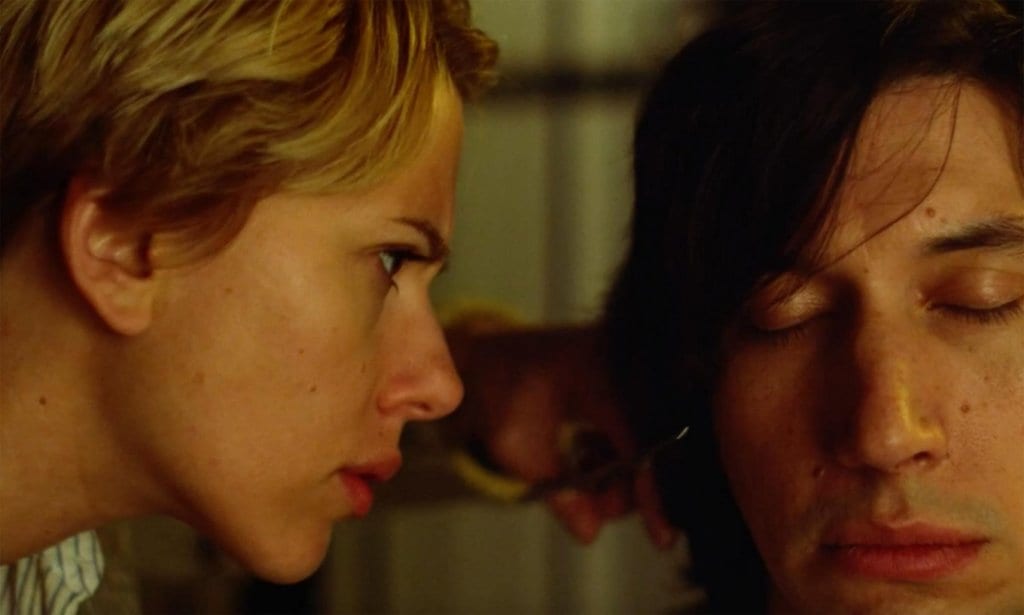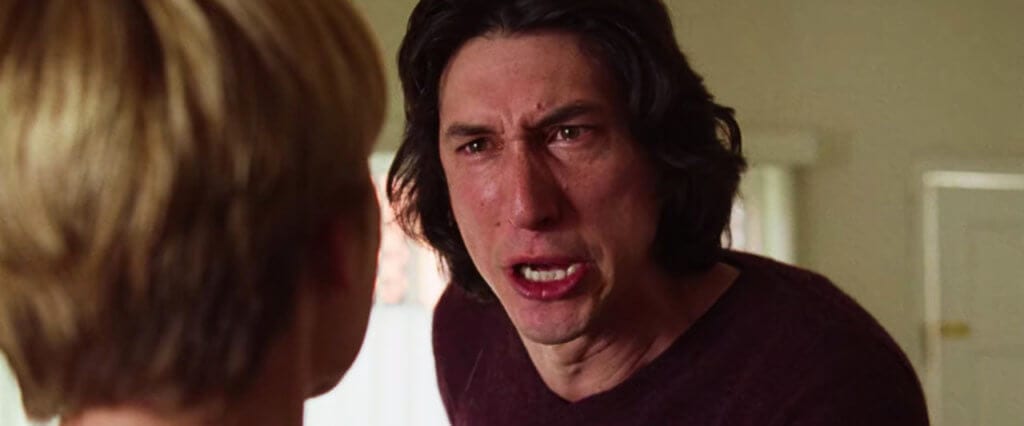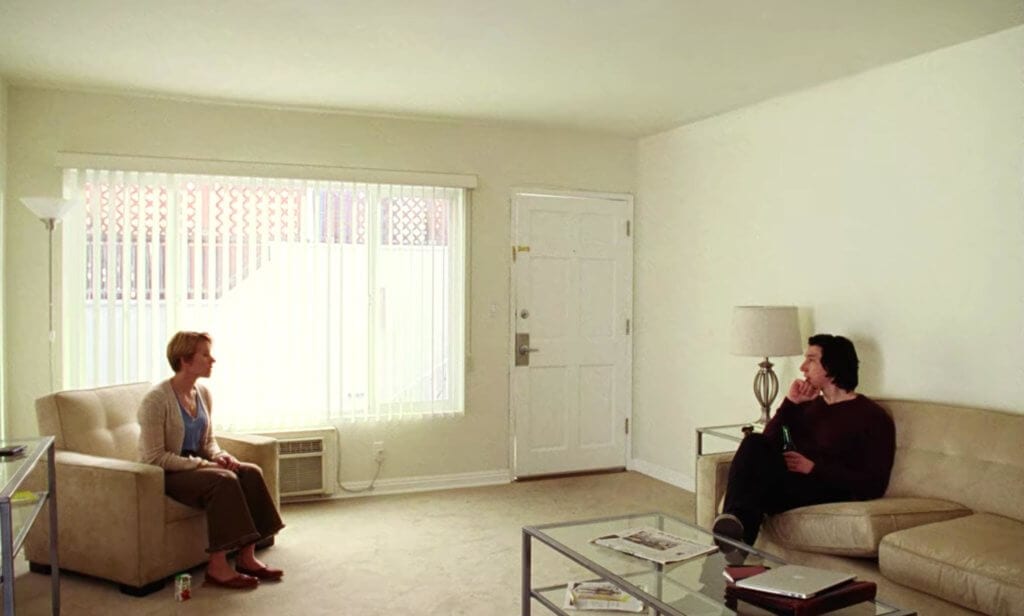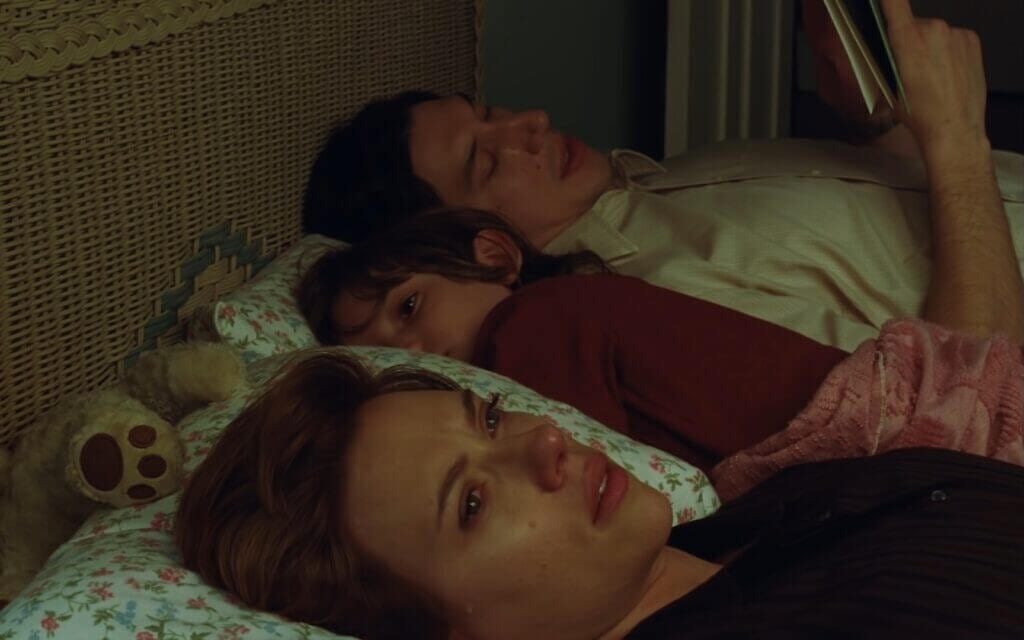The Tragedy of Marriage Story
Like many people, I was instantly excited by the announcement of Marriage Story, Noah Baumbach’s latest Netflix release. I’ve really enjoyed some of his other films, like While We’re Young and, especially, The Meyerowitz Stories. Marriage Story features another amazing ensemble cast, including Scarlett Johansson, Adam Driver (who I quite like based on his non-Star Wars work), Laura Dern, Alan Alda, Ray Liotta, and more. The acting in Marriage Story is every bit as good as you’d expect, with the two leads doing some of the best work of their respective careers. There’s a scene near the end in which they hash everything out, and it’s incredibly raw, visceral, and heartbreaking. In technical terms, I think Marriage Story is one of the year’s most masterfully made films. It’s never dull, never shies away, or loses sight of what it is and what it wants to say.
However, it’s also never funny or joyous. The characters rarely get to experience anything other than suffering or regret. As the film goes on, their behavior often makes you wonder if that’s what they deserve, all things considered. Marriage Story is competently directed and technically well-made, but I can’t say that I enjoyed it. To do so would be a misunderstanding of the word itself and, I believe, of this film’s intentions. This is a film meant to be experienced but not enjoyed. Marriage Story’s main goal seems to be to create empathy for the estranged central couple and to make it clear that the split is no one person’s fault. However, personally, I took from the film some very different ideas than what the makers were seemingly trying to communicate.
*SPOILERS*
Marriage Story takes an interesting approach to showing these divorce proceedings. We see the two leads argue a lot, and Nicole even moves back home to L.A. before we ever learn why exactly she wants a divorce. When Nicole has her first meeting with her attorney, Nora (Laura Dern), she finally becomes very specific. Charlie cheated on her with another member of their acting troupe, but more importantly, she feels that he outshines her, both professionally and personally. The first point is very understandable. Charlie later remarks that Nicole withdrew and stopped showing him affection, so it’s clear how this could have happened. But personally, this made me hate both characters, because this betrayal was caused by a lack of communication on both ends.

Nicole feels like Charlie makes all of the decisions for the family. She also worries that his directing career outshines her as an actress and aspiring director. Again, this makes enough sense, but it just makes both characters seem self-absorbed and makes it hard for me to care about them. All throughout Marriage Story, Nicole struggles with knowing what she wants and being able to express it to people. This being said, I can’t help but wonder if she displayed a similar lack of self-knowledge and communication skills while married and trying to build a life with Charlie. Over and over, Nicole insists that Charlie is the selfish one and never listened to what she wanted. In her defense, he does demonstrate himself to be a selfish jerk multiple times, including in his infidelity. However, the only information we have is what the film presents. Based on Nicole’s refusal to be clear on what she wants and why, it’s hard for me not to assume she has done the same throughout their marriage. Nicole also babies their child to a disturbing extent, letting him do whatever he wants, and rewarding basic behaviors like coming home or using the bathroom. When the time comes in court, she’s more than willing to use her own son as a pawn to hurt and legally disadvantage her husband. She also does little to encourage or help them hang out together until after the divorce is finalized.

However, this isn’t to say that I thought Charlie was a dreamboat, either. The film offers no evidence that he ever tried to talk to Nicole about their lack of intimacy or how that made him feel. Rather, he seemingly jumped right into their co-worker’s arms. He also has an incredible rage within him that rears its ugly head at crucial points throughout Marriage Story. At times, it seems like Nicole knows exactly what to say to provoke Charlie and uses this to manipulate him. However, his bad behavior is still his own. Ultimately, though, Charlie seems to be surprisingly civil throughout the proceedings, especially compared to Nicole. Unlike her, he’s initially willing to go through the therapy process. He also wants to stay close with Nicole and her family, not just their son, Henry. He tries to avoid using lawyers in the proceedings, stating that they will simply make the process more expensive and stressful, which proves to be true.

The divorce itself feels like Nicole rebelling against her own life choices, ones that she has made or, in some cases, at least chosen to go along with. She continually makes herself sound like some kind of victim, as though Charlie has coerced her into living in New York and doing what he wants to do. Altogether, it seems like her complaint is, “I don’t know what I want, but this isn’t it, so I give up,” and I find that so dislikable. In fairness, they repeatedly say that Charlie and Nicole have “discussed” moving to L.A., but it’s implied that Charlie had no intention of doing so. Based on what we do see in the film, I just can’t help wondering the extent to which Nicole voiced her concerns. If both parties would openly discuss their problems, needs, and goals, they would be more likable characters, and in the context of the story, the family could have been saved.
In addition to a lack of communication, Charlie and Nicole suffer from an inability to compromise. This is seen in Nicole’s unwillingness to trade visitation days to make sure Charlie gets one, Charlie’s reluctance to give Nicole more control over her life, and both parties’ refusal to budge on the living situation (until it’s too late). This one is pretty simple; neither character stops to consider what the other wants, and they seem more concerned with personal desires than what’s best for their son. I can’t deny that this is realistic, but it makes it very hard to see the film’s events as being nobody’s fault or inevitable. Both leads time and again do everything possible to prove their selfishness, laziness, and lack of willingness to work things out. Nicole says in her letter that she refuses to read at therapy that she’s still in love with Charlie, and his behavior would seem to indicate that he feels the same. Even at the film’s end, when the divorce is final, and everyone is civil again, it’s all just sorrow and regret. Charlie solemnly notices that Nicole’s mother has removed all evidence of him from the family home, and he breaks down in tears upon finally reading Nicole’s letter.

It seems that Marriage Story wants to say that everyone is flawed, there isn’t always a bad guy, and that sometimes true love isn’t enough. However, art is subjective, and sometimes intention isn’t the only consideration. The lessons in Marriage Story that stuck out the most to me involved two very self-absorbed, uncompromising individuals hurting themselves and each other, and losing something great in the process. One is left to wonder if Johansson’s Nicole won’t simply make the same mistake with her new lover and end up just as unhappy as Charlie is. Overall, I think Marriage Story is very effective at telling its story; it just isn’t fun, enjoyable, or my kind of thing at all.







